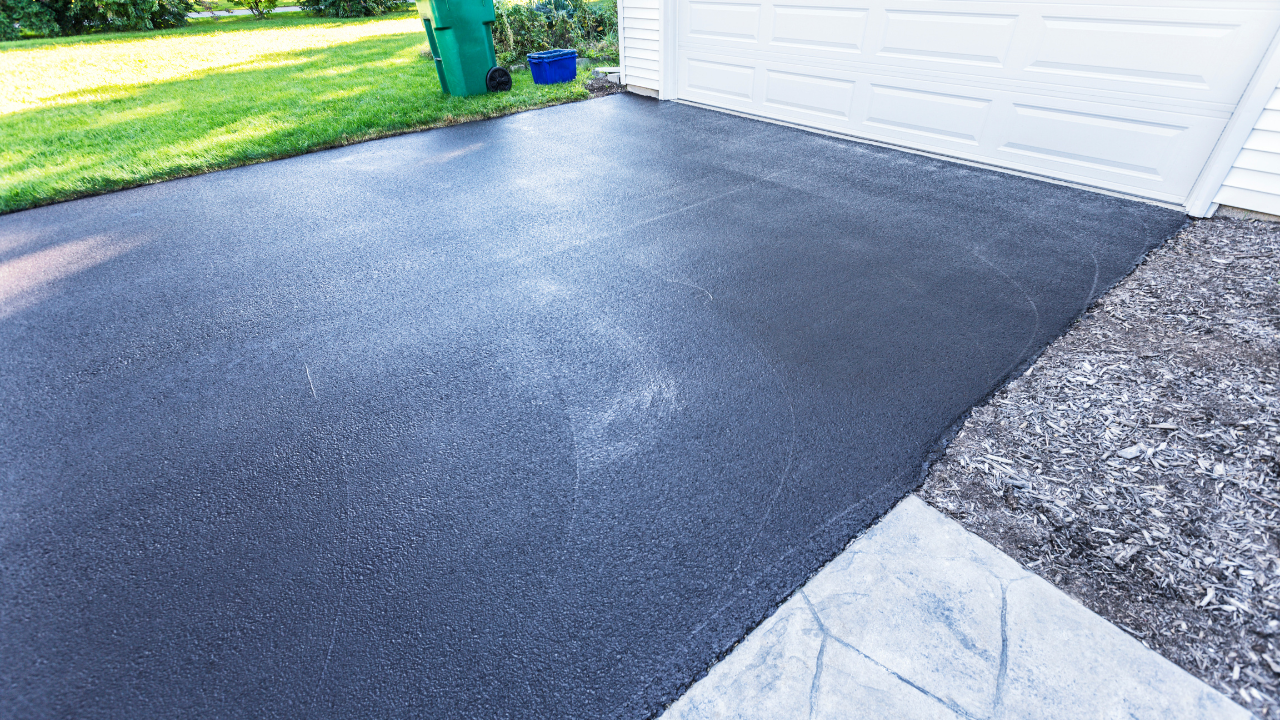Key Takeaways:
- Concrete offers more longevity, especially in warmer climates.
- Asphalt is cost-effective but requires more frequent maintenance.
- Concrete provides more customization options for design and aesthetics.
- Asphalt performs better in colder climates due to its flexibility.
- Partnering with a San Diego general contractor ensures a successful driveway installation.
When planning a driveway installation or replacement, choosing the right material can make all the difference in aesthetics, durability, and cost. The most common options are concrete and asphalt, each with its unique advantages. Whether you want a driveway that complements your home's style or one that can withstand the elements, this guide will help you make an informed decision.
Key points to concrete vs asphalt driveways include:
- Durability
- Climate Considerations
- Installation and Cost
- Maintenance
In this article, we will compare concrete vs asphalt driveway choices, discuss their benefits, and help you determine which one suits your needs. Partnering with a San Diego general contractor will ensure a smooth installation process, while elements like patio covers and hardscaping can enhance your driveway’s overall appeal.
Concrete and Asphalt Driveways
Both concrete and asphalt are popular choices for driveways due to their affordability and durability. However, each has its strengths depending on your specific needs, climate, and budget. Whether you're installing a new driveway or upgrading an old one, it’s crucial to understand the differences between concrete vs asphalt driveway options.
Why Consider the Right Driveway Material?
- Increases curb appeal.
- Adds value to your home.
- Improves functionality and ease of use.
- Requires minimal long-term maintenance.
By selecting the right material and design, you can create a driveway that will last for decades while boosting your home’s aesthetic and market value.
1. Durability: Which Option Lasts Longer?
One of the first factors homeowners consider when choosing between concrete vs asphalt driveway options is durability. Driveways take a lot of wear and tear from cars, weather, and daily use, so selecting a long-lasting material is essential.
Concrete:
- Longevity: A well-maintained concrete driveway can last up to 30-40 years.
- Strength: Concrete is highly durable and less prone to rutting or potholes.
- Maintenance: It requires sealing every few years to protect it from cracks.
Asphalt:
- Longevity: Asphalt driveways typically last around 20-25 years with proper care.
- Flexibility: Asphalt has more flexibility, making it less likely to crack in freezing weather.
- Maintenance: Asphalt requires resealing more frequently, around every 3-5 years, to maintain its surface integrity.
When comparing concrete vs asphalt driveway options in terms of longevity, concrete tends to outlast asphalt, but asphalt’s flexibility can make it more resilient in regions with extreme temperature fluctuations.
2. Climate Considerations: What Works Best for Your Environment?
The climate where you live plays a significant role in the performance of your driveway over time.
Concrete:
- Concrete is better suited for warmer climates because it can crack when exposed to extreme cold. If you live in a warm area like San Diego, concrete is often a better choice.
- In colder regions, salt and freezing temperatures can degrade concrete over time.
Asphalt:
- Asphalt performs better in colder climates since its flexibility allows it to expand and contract without cracking.
- However, in hot climates, asphalt can soften, leading to ruts and deformation.
If you're considering concrete vs asphalt driveway options in a place like San Diego, a San Diego general contractor would likely recommend concrete due to its heat resistance.
3. Aesthetics: Which Material Looks Better?
The appearance of your driveway can greatly affect your home’s curb appeal, so aesthetics matter.
Concrete:
- Customizable: Concrete can be stamped, stained, or textured to mimic the appearance of brick, stone, or tile. You can also choose various colors to complement your home's exterior.
- Modern Look: Concrete driveways often provide a sleek, modern appearance that works well with contemporary homes.
Asphalt:
- Simplicity: Asphalt is typically dark black and has a clean, simple look. It’s ideal for those seeking a more understated appearance.
- Limitations: While it can be edged with stone or pavers to add some design elements, asphalt is not as customizable as concrete.
In terms of visual impact, concrete offers far more versatility, especially if you're working with a San Diego hardscaping team to integrate other design elements like patio covers or garden spaces.
4. Installation and Cost: What’s the More Affordable Option?
Installation time and cost are key factors for most homeowners when deciding on concrete vs asphalt driveway options.
Concrete:
- Cost: Concrete driveways are typically more expensive upfront, costing between $6 to $12 per square foot.
- Installation Time: Concrete takes longer to cure, meaning your driveway may not be ready for use for up to a week.
- Labor Intensive: It requires professional installation due to the intricacy of leveling and curing.
Asphalt:
- Cost: Asphalt driveways are generally more affordable, ranging from $2 to $5 per square foot.
- Installation Time: Asphalt can be installed and ready to use within 24 to 48 hours.
- Maintenance Costs: While cheaper initially, asphalt requires more maintenance, which can add up over time.
For budget-conscious homeowners, asphalt is the more affordable option, but if you're looking for long-term value, concrete might be the better investment.
5. Maintenance: Which One is Easier to Care For?
Ongoing maintenance is another important consideration when choosing between concrete vs asphalt driveway options.
Concrete:
- Low Maintenance: Concrete driveways require less frequent maintenance than asphalt.
- Sealing: You may need to reseal every few years to prevent cracks and stains.
- Cleaning: It’s easier to clean and less prone to damage from oil spills or leaks.
Asphalt:
- Higher Maintenance: Asphalt driveways need regular resealing to prevent cracks, fading, and potholes.
- Repair Costs: Although asphalt repairs are easier, the need for frequent resealing can drive up maintenance costs over time.
- Cleaning: Asphalt can be more challenging to clean, especially if oil or fuel spills occur.
In the concrete vs asphalt driveway debate, concrete tends to win out on ease of maintenance and lower long-term costs.
Which Option is Best for Your Driveway?
When deciding between concrete vs asphalt driveway, both materials offer distinct benefits depending on your needs, budget, and climate. Concrete is a more durable, visually customizable option that excels in warm climates like San Diego. Asphalt is more affordable and performs better in cold climates but requires more frequent maintenance.
Your driveway is an investment. Let Precision General Contracting help you make the right choice. Our expert team will guide you through the process, ensuring your driveway is both durable and aesthetically pleasing.

